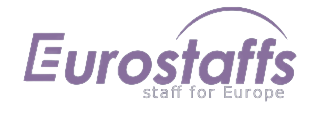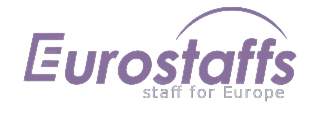Student Visa Requirements & Tips for France, Germany & the Netherlands
Student Visa Requirements & Tips for France, Germany & the Netherlands
Studying in Europe has become a dream for many students worldwide. Countries like France, Germany, and the Netherlands are known not only for their world-class education systems but also for their student-friendly environments. However, before you pack your bags, understanding the student visa requirements is essential. In this article, we will break down the student visa process, requirements, and expert tips for these three European countries.
Why Choose France, Germany, and the Netherlands?
These three countries are among the top choices for international students due to the following reasons:
Affordable or no tuition fees (especially in Germany)
Courses in English for international students
Strong job market for graduates
Cultural diversity and safety
High quality of life
Need help with your university application or visa? Contact Euro Staffs – We provide expert assistance for student visas in Europe.
Student Visa for France
Requirements:
To study in France for more than 90 days, you will need a long-stay student visa (VLS-TS).
Documents typically required:
Valid passport
Proof of acceptance at a French institution (Admission letter)
Proof of accommodation
Proof of financial means (minimum approx. €615/month)
Proof of medical insurance
Completed visa application form
Recent passport-sized photos
Application Process:
Apply via Campus France (for many countries)
Submit your visa application at the French consulate or VFS center
Attend visa interview (if required)
Receive your VLS-TS visa
Tips:
Apply at least three months in advance.
Prepare all documents with official translations if not in French.
Once in France, validate your visa online within 3 months.
Student Visa for Germany
Requirements:
Germany offers a National Visa (D Visa) for students who have been accepted into a recognized German institution.
Documents required:
Valid passport
University admission letter or conditional acceptance
Proof of blocked account (minimum €11,208/year as of 2025)
Academic transcripts
Proof of accommodation
Health insurance certificate
Motivation letter
Application Process:
Open a blocked account in Germany
Schedule a visa appointment with the German Embassy
Submit your documents and biometric data
Wait for visa approval (processing may take 6-12 weeks)
Tips:
Book your appointment early due to high demand.
Make sure your blocked account is correctly opened with an approved provider.
Use your conditional admission letter if you’re still waiting for final acceptance.
Student Visa for the Netherlands
Requirements:
The Netherlands requires students to apply for a provisional residence permit (MVV) and a residence permit (VVR) for long-term study.
Documents needed:
Valid passport
Proof of admission
Financial proof (~€1,200/month in 2025)
Health insurance
Tuberculosis test (may apply to certain nationalities)
Completed MVV/VVR forms
Application Process:
Your Dutch university applies for your MVV & residence permit
Submit additional documents if required
Once approved, collect your MVV at the Dutch embassy
Travel to the Netherlands and collect your residence permit
Tips:
Choose a recognized sponsor university.
Ensure your financial proof covers living and tuition costs.
Apply for insurance before departure.
Common Mistakes to Avoid
Submitting incomplete or incorrect documents
Last-minute applications
Ignoring the health insurance requirements
Not preparing for the visa interview
Using unofficial translations
Euro Staffs: Your Trusted Student Visa Partner
At Euro Staffs, we have helped hundreds of students get admitted into top universities in Europe and secure their student visas successfully. Whether you're applying to France, Germany, or the Netherlands, we ensure:
Proper documentation & visa filing
University application assistance
Financial document guidance
Accommodation advice
Pre-departure preparation
Learn more about our Student Visa Services or Apply Now.
Frequently Asked Questions (FAQs)
1. Can I work while studying in these countries?
France: Yes, up to 964 hours per year.
Germany: Yes, 120 full or 240 half days per year.
Netherlands: Yes, up to 16 hours/week during term and full-time during holidays.
2. Do I need IELTS for my student visa?
Usually yes, especially for English-taught programs. Check specific university requirements.
3. Can I bring my spouse or family?
Rules vary by country. In Germany, it’s possible under certain conditions. France and the Netherlands also allow family reunification, but after specific visa categories.
4. Can I stay after graduation?
Yes. Each country offers post-study work permits or job-seeker visas for graduates.
Conclusion
France, Germany, and the Netherlands offer excellent academic opportunities and vibrant student life. But navigating the student visa process requires preparation, attention to detail, and the right support. Make sure you follow country-specific guidelines and prepare your documents well in advance. With the right steps and expert help from Euro Staffs, your dream to study in Europe can become a reality.
Call to Action
Need Help with Your Visa or University Application?
Visit EuroStaffs.org for personalized support, updated information, and expert guidance to make your European study journey smooth and successful.
Contact Us: +1(212)555-3890 | +8801775712640 (WhatsApp)
Email: [email protected] | [email protected]

 French
French
 Arabic
Arabic
 English
English



